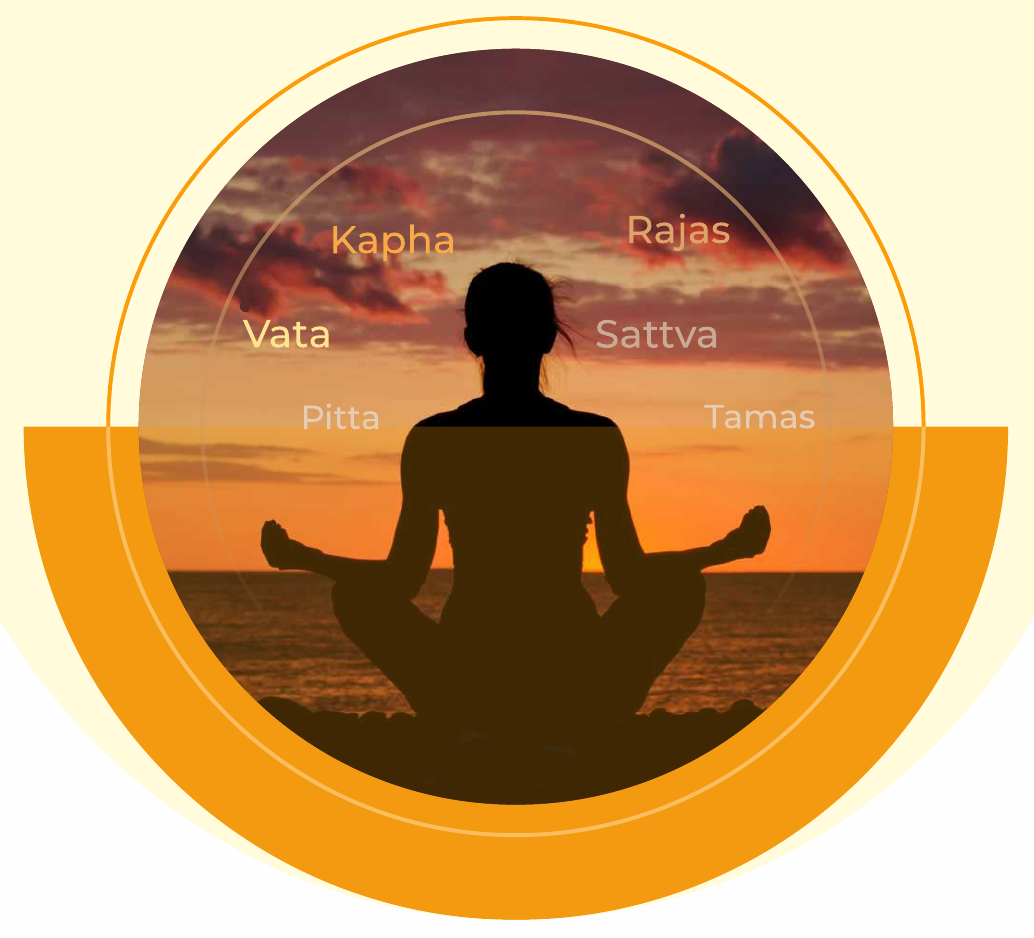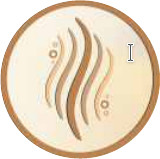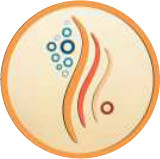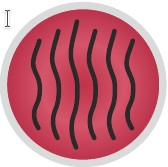Indian psychological assessment and wellbeing program
Examines personality types through the behavioral aspects of three qualities - Trigunas and three humors - the Tridoshas. To know the Triguna and Tridosha personality types these humors and qualities are measured as combinations in the “iPersona Assessment”.

From Charaka to iPersona
Bringing Revolutionary program on wellbeing through the lens of Bharatiya Psyche
Try out iPersona
Our iPersona assessment is free of cost for a limited period of time. Grab the opportunity and get a comprehensive report delivered to your email.
- Your data is safe and secure.
- Data is not shared with any third party.
- A safe digital environment and user-friendly interface.
- Get instant report on your email
सत्त्वं रजस्तम इति गुणा: प्रकृतिसम्भवा: |
निबध्नन्ति महाबाहो देहे देहिनमव्ययम् ||5||
Bhagavad Gita: Chapter 14, Verse 5
The material energy consists of three guṇas (modes)—sattva (goodness), rajas (passion), and tamas (ignorance). These modes bind the eternal soul to the perishable body.
Should I take this Assessment?
Experience the Transformation
Panch-Mahabhutas
Tridoshas
Vata
determines movement, energy, creativity, and flexibility. It is the most powerful among the doshas, formed by the interaction of space and air, Vata is movement, the body in motion.

Pitta
determines reasoning, understanding, and logical analysis. Formed by the interaction of fire and water. The polarity of these two elements plays an important role for Pitta, which regulates the body metabolism and transformations in the body’s form.

Kapha
determines stability, temperament, good memory, care and love. It is formed by the structural properties of earth, with water in its role as a lubricant to different tissues of the body, which also aids strength and adds stamina to the body.

Trigunas

Sattva
determines harmony, balance, optimism, and constructiveness. Sattva refers to Pure hence indicates your personality type as such. It is the positive and spiritual quality that, when dominant, you have a natural tendency to be kind, caring and self controlled.

Rajas
determines the need for achievement, will-power, ego, and individualization. Rajas people are very desirous and full of attachment. Due to their acute self-interest, sometimes they may face difficulties in differentiating between right and wrong.

Tamas
determines negative thinking patterns, ignorance, and imbalances in temperament. Tamas means Darkness, which indicates the psychological state of Illusion, negativity, dullness, and inactivity.
In Ayurveda, the tridosha theory has originated from the theory of the elements of the universe and the names of these 3 doshas are roughly equivalent to humour. Vata, Pitta and Kapha correspond to the 5 elements of the universe: earth, water, energy, air, space. Integrity and endurance of the body depends on these 3 doshas, hence they are the pillars of our body.
Our mind has qualities of Sattva (harmony), Rajas (dynamic) and Tamas (inert/inactiveness), collectively called ‘Trigunas’ or better known as ‘Mansa dosha’ (psychic constitution). According to the Vedas, all material elements are infused with the modes of nature, or gunas.
